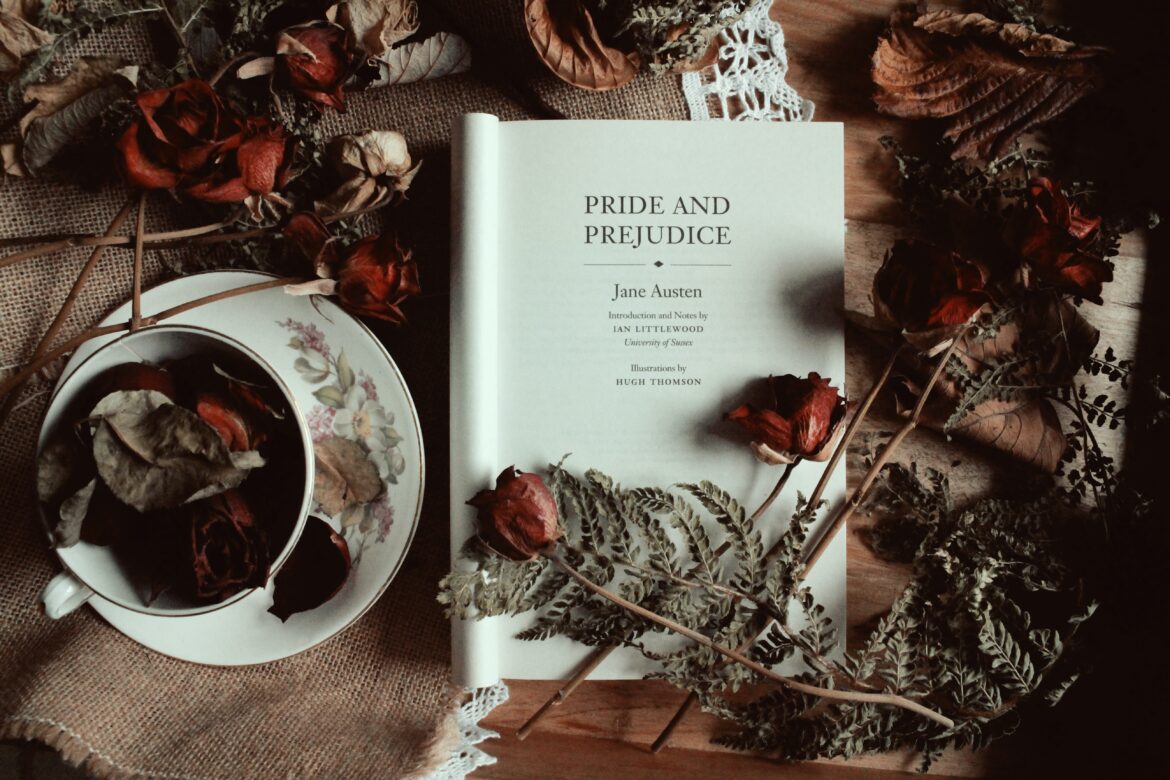I don’t even know how many times I’ve returned to Jane Austen’s novels, especially the novel Pride and Prejudice, which I now see is not only a romance novel, but a novel that also deals with significantly more important issues. The main character Elizabeth Bennet is one of the few who bravely opposes the patriarchal society of the 19th century. Jane Austen places Elizabeth (as well as other female characters in her novels) at the center of events, allowing her to interpret reality and to show the reader more closely the state of society at that time. Some of the topics that Austen deals with (directly or indirectly) are marriage, education, free will, and inheritance of property.
At the very beginning, we learn that the estate of the Bennets cannot be inherited by their children because all their children are daughters. According to the law of the time, property was inherited from father to son or to the closest male relative. Basically, it was understood that a woman moves from her father’s house to her husband’s house and that she does not need any property. This issue forms the first big question of freedom in this novel and highlights the problems of the patriarchal system. Austen also touches on this topic in some of her other novels, for example, Sense and Sensibility.
Furthermore, in the novel, Austen also focuses on the topic of marriage and how it relates to free will. In this regard, I recall the scene in which Elizabeth Bennet refuses to marry her cousin Collins and the heir to the Bennet estate. At that moment, chaos erupts in the Bennet household as Elizabeth has rejected the only opportunity to keep the estate in the family somehow. By expressing her free will to refuse marriage to Collins, Elizabeth risked not even having a place to live after her father’s death. On another occasion, Elizabeth rejects Mr. Darcy’s proposal because she did not like his difficult nature — this is also something ‘unthinkable’ given Mr. Darcy’s wealth. In both cases, Elizabeth goes against patriarchal principles and is free to decide her own destiny and whom she will marry.
Also, what is known is that at that time not everyone had the same opportunity for education and, therefore, advancement — this was especially true for women. Classes in the English society of that time rarely mixed and the possibility of moving from lower to higher was almost always possible only if it was through inheritance. Girls almost always married exclusively within their class and it was widely believed that by marrying they would gain some form of independence as they would manage their husband’s household. Girls from the middle and especially the lower class did not have the opportunity to get an education, but they were taught to write, read, play an instrument or sing, or acquire other qualities that would later help them in looking for a suitable husband.
Elizabeth Bennet stands out because of her unconventional views on education and marriage. She doesn’t want to get married to secure herself financially, and lets everyone know that she will only get married when she finds the person she truly loves. Furthermore, Elizabeth does not want to get an education just to acquire marriageable qualities, but solely to do what gives her pleasure. For example, she uses every free moment to read but to the astonishment of many, she does not sing or play an instrument which makes her less suitable for marriage. Elizabeth was not formally educated, but had a strong character and was highly intelligent which made her particularly attractive.
Thus, Elizabeth was married neither by her social status, nor by her beauty, nor by her education, nor by the manners of an obedient girl, but by her character, which was beyond what was expected. She was married by the freedom and identity she gained thanks to herself alone. I realised the importance of this novel only after several readings, because at first it seemed to me to be exclusively a romance novel. Now I intend to return to some other romance novels and research them more closely — who knows what other testaments to human freedom I might uncover!
